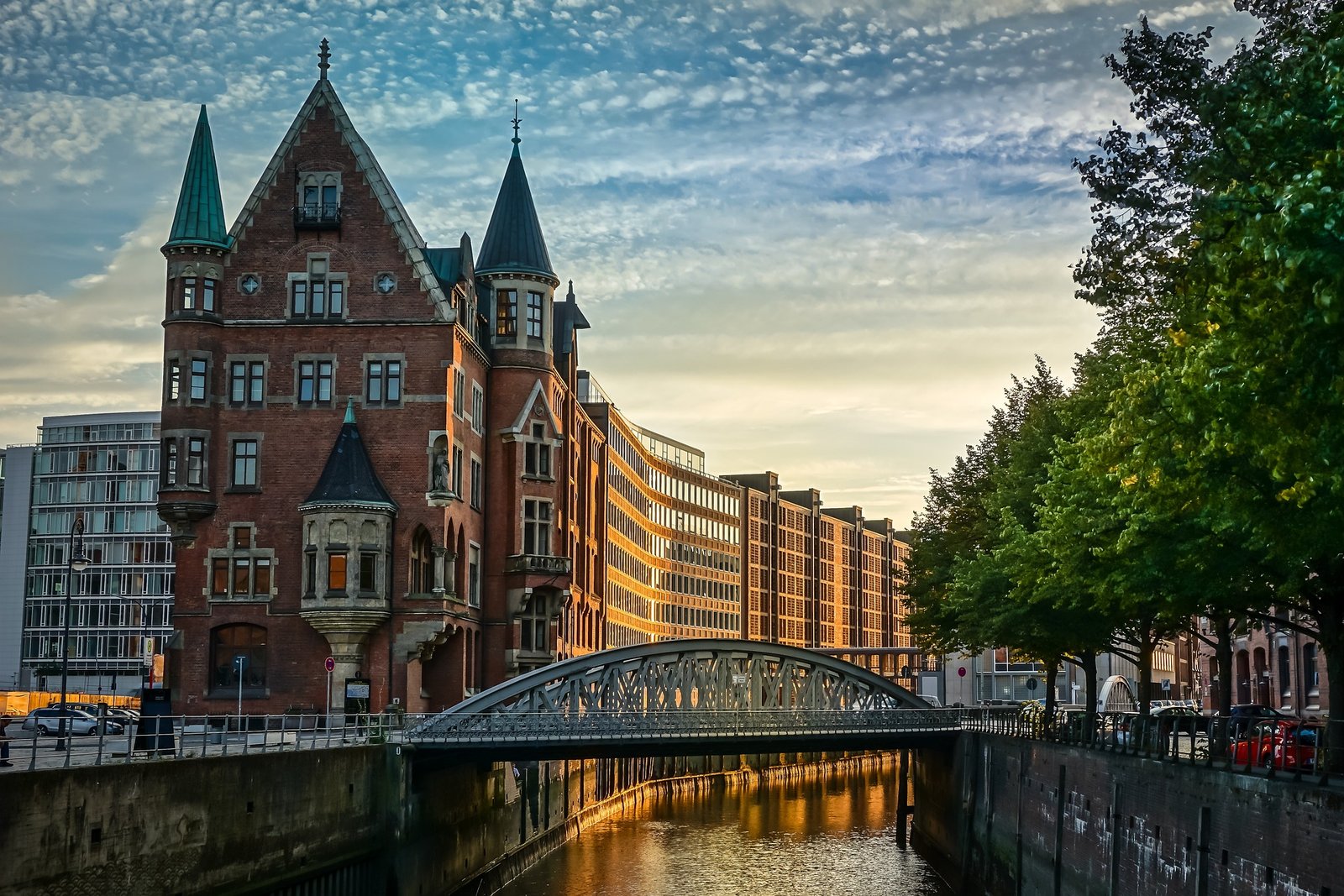
Another cozy corner with a fireplace for those cold nights seemed to lack any other romantic undertone in German history other than the set up of a central refugee shelter. The country is heralded as a bright light for those fleeing violence, oppression, or life-threatening situations-but, surely, the manner in which the scenario has unfolded has earned the German state some criticism.
The late-night conversation included the asylum scene in the country: areas of strength, areas of weakness, and the nasty laws that continued to play on the life stories of people. Imagine us sitting there, having our mugs full of mulled wine, and a plate of warm pretzels, gulping down every bit with an open heart. Shall we finally get into the heavy stuff?
A foundation
The Backbone: Germany’s refugee setup leans on two sturdy legs—its own laws and global promises. The Grundgesetz, their constitution, flaunts Article 16a, a bold pledge to shield anyone hounded for their politics or brave stands. Doesn’t that sound like a warm hug from a nation with soul?
The Catch: Lately, that promise has hit a snag. If you’re from a so-called “safe third country”—someplace the bigwigs deem safe—you might get turned away at the border, no questions asked. It’s like being denied entry to a shelter when the storm’s at its worst—how’s that sit with you?
Spain offers basically four different modes of protection:
- Refugee status: Persons who have to meet the very strict set of standards laid down in the international conventions of law for an individual to be accepted as a refugee within their law into Germany. Some reasons of persecution would be for belief, ethnicity, or identity.
- Subsidiary protection: You do not quite fit the very stringent definition of being granted refugee status, but you do stand to be subjected to serious harm, such as situations of war or torture, thereby the other mode of saving a life.
- Not every story has a happy ending, of course. Your application may be denied if BAMF decides it really does not stand or if you have transited a safe third country en route. The rejected case shall be requested to leave Germany; thus all support will be withdrawn from your side.
The big picture
The asylum system has to balance in Germany. On the one hand, it is a country that is offering millions of people safety and an opportunity to recover. On the other hand, it faces the pressure of tightening its rules, politically, socially and logistically. For example, the so-called “safe third country” policy has thrown stir: Is it fair to deem someone safe merely because they have passed through another country?
Human rights commitments
When time stands still
Imagine your whole existence hanging by a very thin thread and waiting not for weeks, nor even for months, but for years. The time allotted for asylum application is rarely honored in the German deprivation system. So much time is spent in congested refugee centers where privacy is totally out of hand. It’s tiring, it’s frightening, and sometimes it gets downright hopeless. Is attending school your dream? Employment? Starting a life? All of this is put on hold because you find yourself stranded without any knowledge of how the days or weeks ahead are going to turn out. These are not just delays; the more time passes, the more it steals from your very hope itself.
When the system turns its back
The German asylum system was supposed to protect, but sometimes it cracks. When people are returned to countries engulfed in chaos-Afghanistan, Syria, Iran-human rights activists raise louder and louder alarms. Just think, driving a person into a place where they may be killed or tortured! Sometimes, the activists can stop the deportations, but those few victories still leave a very bitter taste. Why is that?
Is it all that simple?
But is everything really so clear-cut? Supporters for rejecters say this oversimplifies the picture. If you are an LGBTQ+ person, an ethnic minority, or speak out against the authorities, even in a “safe” country, you can be threatened, beaten, or persecuted. All these nuances are ignored by the term “safe,” which in turn hurts those who seek refuge.
The fate of people opposing the regime
Germany has got a very long history of sheltering those fighting for freedom: Iranian feminists, Russian oppositionists, Chinese whistleblowers. This is a country that has repeatedly become a haven for activists, journalists, and dissidents. But there is a problem: if you do not have a high-profile story in the media or documents proving your persecution, it becomes very difficult to prove your truth. This is especially true for those whose applications were submitted many years ago. The bureaucratic machine may simply not notice their stories, and this is heartbreaking.
Trends and turning points
Germany became a real centre of attention in 2015, when wars and instability in the Middle East brought more than a million asylum seekers here. It was a game-changer: it changed the way Germans talk about migration and put the state system under enormous pressure. Infrastructure faltered, but the country still struggled to cope. The period showed how difficult it is to balance humanity with what is practical.
The number of applications has fallen in recent years, but remains high. New source countries include:
- Turkey: after a failed coup attempt in 2016, waves of journalists, academics and Kurdish minorities fled repression.
- Iran and Afghanistan: escalating tensions, particularly for women, LGBTQ+ people and ethnic groups, continue to fuel a steady flow of migration.
- Russia and Belarus: state crackdowns on protesters and opposition groups have sharply increased the number of asylum applications from these regions.
- Notable examples include Germany’s acceptance of Russian anti-war protesters and Belarusian pro-democracy activists facing persecution in their home country
The Role of Judicial Review
Administrative courts in Germany play a key role in providing legal protection by reviewing cases of rejected asylum applications. A significant proportion of decisions made by the Federal Office for Migration and Refugees (BAMF) are subsequently overturned by the court, resulting in the applicants being granted refugee status or subsidiary protection.
This judicial review illustrates how laborious and controversial the assessment of asylum applications can be, and highlights the critical dependence of the system on judicial intervention. As an example, courts have repeatedly ruled against deporting LGBTQ+ individuals to hostile countries, citing a violation of their fundamental rights, even if the BAMF initially rejected such applications.
Integration: Not Just Getting Asylum, But Finding a Home
Getting refugee status is only the first step, and believe me, it is far from the most difficult one. Then comes the real challenge: to integrate into society, to find your place. Many refugees arrive with a damaged past, without an education, without knowing the language or local traditions. Germany tries: it offers language courses, professional training, opens the doors to the labor market. But does it always work as expected? Not quite.
Take, for example, Syrian refugees. Some of them gradually find good jobs and get back on their feet. But for older people or those in poor health, the path is much more thorny. And if you add delays in family reunification – when relatives cannot come or the application is rejected altogether – this complicates life even more. Imagine what it is like to be safe, but without your closest people nearby. It is like half of your heart is left somewhere far away. Comparing Germany and the World
Unlike some Western countries that have adopted aggressive deterrent measures, including offshore processing or, in at least one case, a bilateral agreement with a third country, Germany has generally maintained its rights-based and procedural model. Detention is rare, appeals are of course allowed, and legal aid is often available.
Reform and what lies ahead
Asylum policy in Germany continues to evolve under domestic and EU pressure. Migration flows are changing, and the legal framework must follow suit.
Continuously and eventually updated:
- A faster processing of cases to reduce delays and the burden on asylum seekers,
- More digitalization in file processing and communication,
- A critical review of safe country designations,
- A stronger focus on integration, especially for women, young people, and survivors of trauma.
The government is also working to improve the return of rejected applicants, sometimes through bilateral agreements. These efforts are morally questionable, as is the forced return of someone to an unsafe environment under the pretext of necessity.
Final Thoughts
To this day, Germany remains the pillar of the international asylum system. Given Germany’s legal obligations and its experience, Germany has a moral and political front to provide protection to those fleeing persecution. But it is a path fraught with tension – between compassion and control, idealism and realism.
So the country must move forward by closing the gaps in justice, speeding up decision-making, and doing so in a way that does not trap people in need in bureaucratic red tape. This is not just about providing protection to others, but also about the very principles on which Germany was founded.







